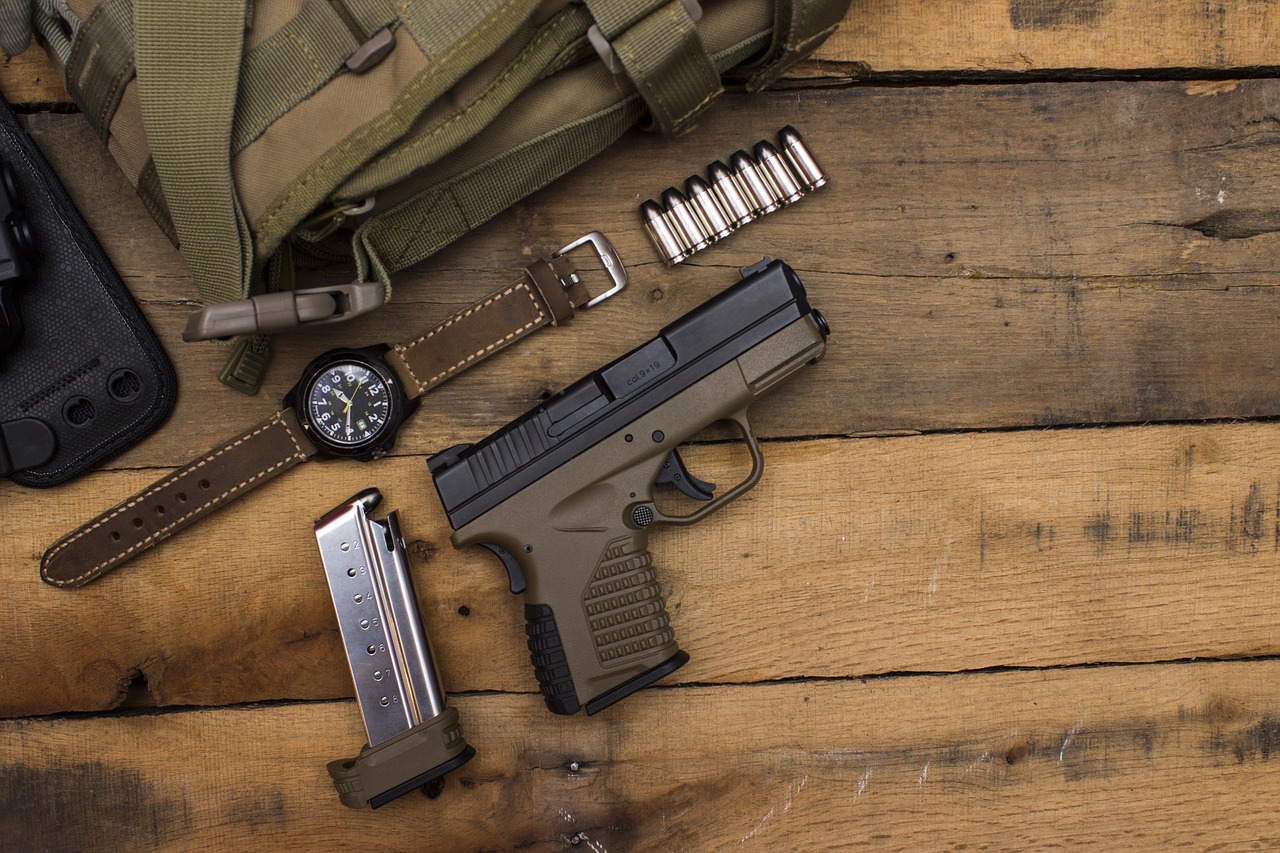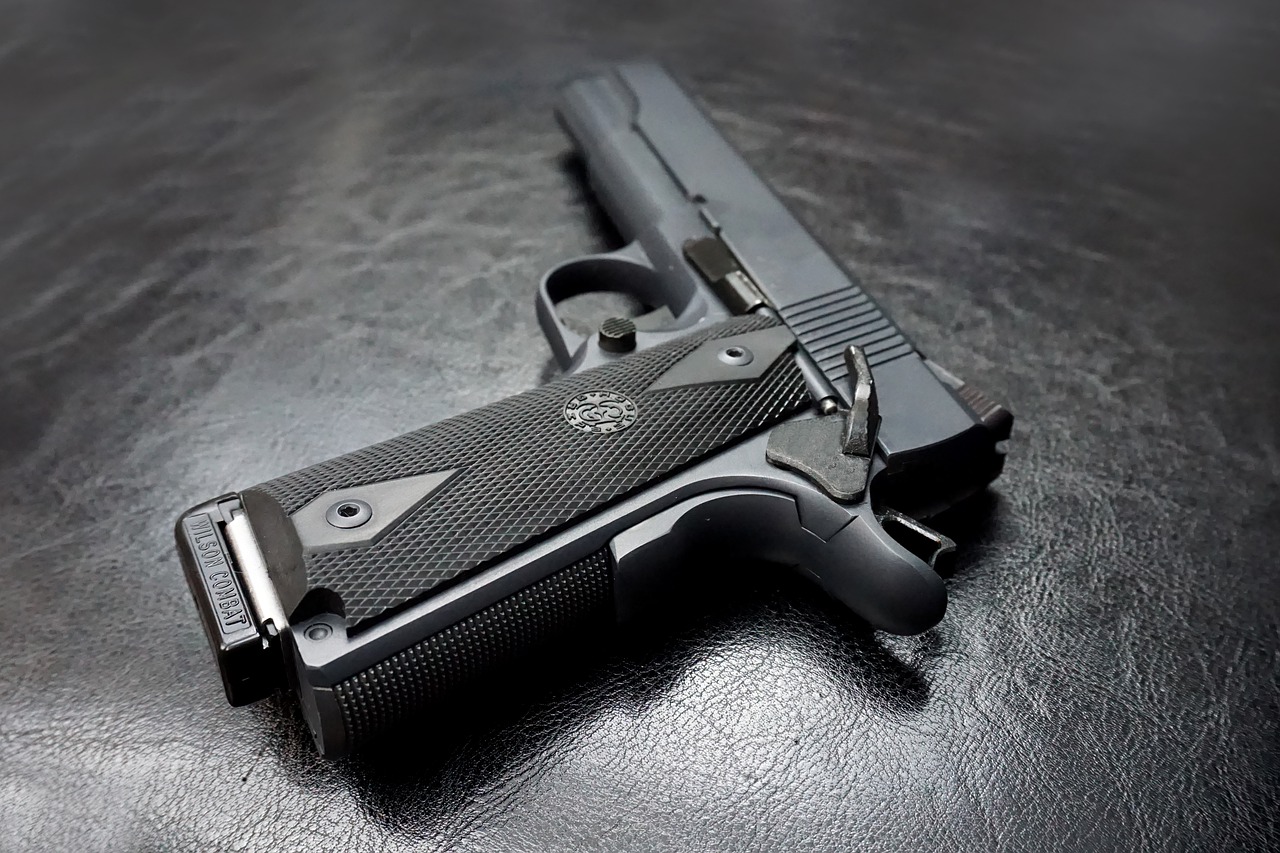Can a Firearm be a Business Expense
Posted by Jessica Koenes on Apr 15th 2022
If you’re like most people, you probably don’t spend much time thinking about the tax implications of owning a firearm. But there are some things to consider when it comes to deducting your guns as business expenses on your taxes.
A gun is a great investment for any business owner. It can be deductible if it's both an ordinary and necessary expense, but specific situations may affect this decision:
Firearm as a Business Expense
People have tried to write off all sorts of expenses. From pets to daily breakfast. The list is extensive. When it comes to tax write offs, you will want to consider two key components. The expense must be ordinary and necessary for your business in order to deduct it. So consider this question when it comes to write offs, how will you make the argument that your firearm is a necessary and ordinary expense for your business?
Deduct the Cost of a Gun
You can deduct the cost of a gun as a job related expense if you are required to have a gun by your employer. You will want to have a business plan and itemize your deductions (real estate taxes, mortgage, charitable contributions and so on) and keep detailed records for the deduction. You can even deduct an off duty weapon if your job requires you to have the weapon as a back-up and it is documented in your job requirements.

Handgun by joshlsnader from Pixabay
Business Expense vs. Hobby
Be cautious when considering your business write-offs. Audits are time consuming and not something you want your business coming up against. People often try to wrap their hobbies into their business expenses. This is a terrible mistake. Your child’s summer camp does not fly as a write off for your business.
It can be a fine line between a business expense vs a personal hobby. Especially when your business is in close connection to a recreational activity. When considering write offs, consider, is it highly related to your business? For example, if you are in the camping gear industry, you will have travel expenses with testing your gear and seeing the functionality in a wide range of scenarios. That travel is highly likely to be fully deductible. However, if you are a banker, it is harder to connect the dots to realistically write off a camping expense.
Necessary Expense
The main focus when justifying a firearm as a necessary expense is the focus of self defense. How many times have you read about or watched the tragedy of a small business casualty due to a robbery gone wrong? Unfortunately, it happens. There are people out there looking for easy income and are willing to go about gaining it off the backs of others.
You need to be prepared to protect your small business and have the proper systems in place. Some operations require a security guard or a high level security system. These can be considered a necessary expense in order to run the day to day operations and protect your business.
Ordinary Expense
Owning a firearm may be necessary for the protection of your business. Defending how a firearm is an ordinary expense within your business for the purpose of justifying it as a tax deduction is the tricky part. This can make the ordinary justification the biggest hurdle that can prevent you from writing off the expense.

Pistol by MikeGunner from Pixabay
Safeguards
For expenses to be deductible, it is required that your expense is both ordinary and necessary. That is the language you will frequently hear when it comes to the IRS. Ordinary expenses are common and frequent within your business. They are the day to day expenses that will be frequent. Expenses that are appropriate and helpful for your business are under the umbrella of necessary. Personal expenses should not be attempted for write off. There will be hangups when justifying the necessity and common use of personal purchases.
Unconventional purchases can sometimes be deducted if the right circumstances line up. Keep up to date with thorough records and work with qualified tax professionals who have specific experience with small businesses. If you are new to tax write offs for small businesses, take the time to research who you hire for accounting. You will want to be cautious in your search.
There are tax professionals who will make big claims to get your business. Be wary of accountants who claim large deductions before reviewing your business and claims. If they are fudging the rules with your small business, they are most likely doing the same for others. If your accountant is flagged by the IRS for an audit, all of their clients are likely to be audited as well. This could have large consequences for your business and prevent you from writing off deductions you should be claiming.
Conclusion
Remember the consequences if you come into an IRS investigation. Gaining their attention is never a good thing. The IRS could put a lien on your business and leave damaging wakes for your profit. You could gain bad credit and your credit scores can take a big hit.
Tax write offs are a wonderful opportunity for your small business. Just stay within the bound of tax write offs and have the proper representation for tax purposes. If the tax write off seems too good to be true, it probably is.
References:
https://www.marketwatch.com/story/the-wacky-things-small-business-owners-try-to-deduct-2017-02-21
